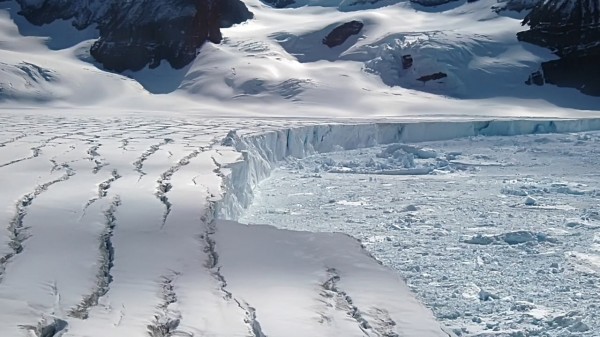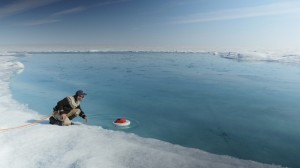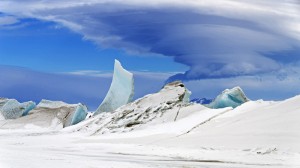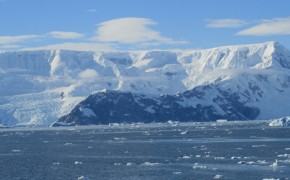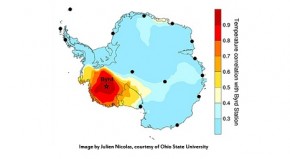Antarctica
Antarctic ice shelf collapse pits fishing against science
British scientists want a fishing moratorium while they study newly open waters, but Russia stands in their way
Burn all fossil fuels and New York drowns – study
NEWS: Exploiting global reserves would melt all Antarctica and jack up sea levels by 50m. Though it would take 10,000 years
NASA: Sea level rise is accelerating as ice melts
NEWS: Scientists form new team to address big uncertainties in the pace of future changes to ice sheets and the ocean
Hi-res models capture West Antarctic ice melt danger
NEWS: Precision mapping of melting glaciers can help predict potentially calamitous effects on sea levels, say scientists
Shock Antarctic ice loss discovered by European satellite
NEWS: ‘Surprise’ thinning of Antarctic region ice sheet revealed by Cryo-Sat2 after five years of measurements, study finds
Scientists warn of “runaway” West Antarctic ice melt
NEWS: Satellite data is used to measure the extent and pattern of increased ice loss that threatens to be a “runaway problem”
Antarctic snowfall set to increase as region warms
NEWS: More snow could fall in Antarctica, with the ice that builds up flowing to the ocean and raising sea levels
Antarctic sea levels rising faster than global average
NEWS: Researchers say around 350 billion tonnes of water from glaciers linked to rises of up to 8 centimetres
Greenland and Antarctic melting at “unprecedented rate”
NEWS: Researchers have established the height of the Greenland and Antarctic ice caps with greater precision than ever before
Human impact on glacier melt increasing – study
NEWS: Scientific studies show increasing human impact on glaciers; Antarctic ice melt faster than thought
Is Antarctica’s ice cover really increasing?
NEWS: Scientists believe they may have found explanations for two inconsistencies in their understanding of global warming
Warming Antarctic leaves iconic emperor penguin on brink
NEWS: Loss of Antarctic sea ice through climate change threatens the emperor penguin’s habitat say scientists
Antarctic ice sheet history suggests role in rapid sea level rise
NEWS: New study suggests melting Antarctic ice sheet contributed to rapid sea level rise 15,000 years ago
West Antarctic glaciers have ‘passed point of no return’
NEWS: Global sea level rise figures may have to be revised upwards say scientists, as pace of melt increases
Abbott urged to rethink climate policies after Australia’s hottest year
Friday’s top 5: Australian PM urged to keep carbon pricing, Chinese icebreaker struggles in Antarctic ice, and Ford displays new solar electric car
90% of ice lost from Antarctica comes from underside of icebergs
Scientists have discovered that many Antarctic ice shelves are losing ice not just by calving icebergs but by melting from their undersides as well.
Antarctic and Greenland glaciers at risk of “catastrophic breakup”
New research shows that Large stretches of ice along the polar coastlines could fall into the sea faster than originally thought
Summer melt increasing on the Antarctic Peninsula
Region warming faster than the rest of the continent as meltwater speeds glacier advance and encourage iceberg break up
Antarctic ice cores back CO2 and temperature link
Reduced uncertainty shows synchronised increase in CO2 and warming at the end of last ice age
West Antarctic Ice Sheet warming raises new sea level rise fears
US researchers report a increase of 4.3 degrees Fahrenheit (2.4 Celsius) in average annual temperature in the region since 1958, three times faster than the average rise around the globe
